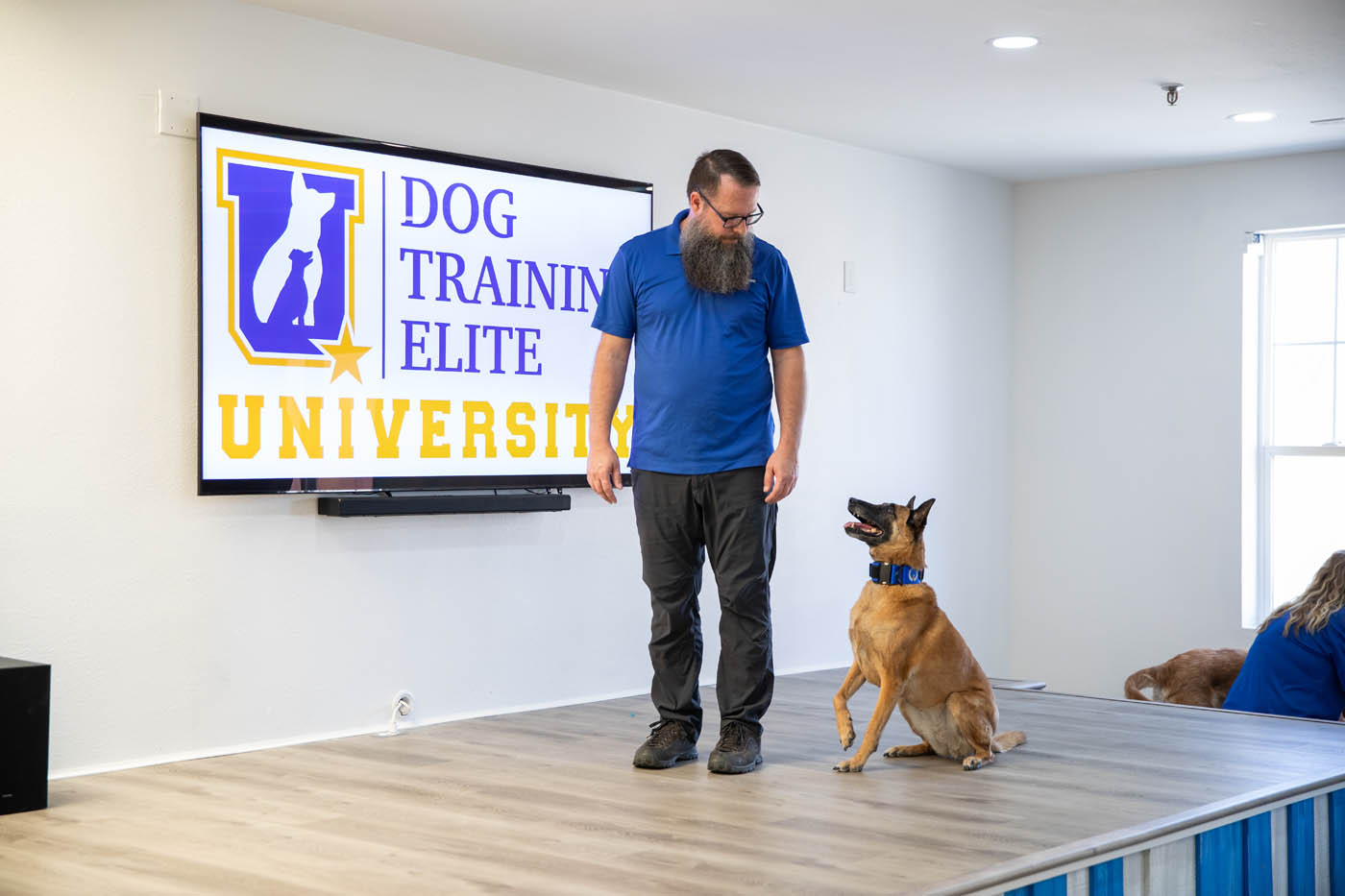Discovering Alternatives for Dog Training Charlotte: What You Required to Know
Discovering Alternatives for Dog Training Charlotte: What You Required to Know
Blog Article
Unlock Your Pet's Potential: Proven Pet Training Strategies for Success
Reliable pet dog training is a nuanced procedure that rests on understanding canine habits and utilizing medically backed strategies. dog training charlotte. By integrating positive support, developing clear commands, and focusing on socializing, pet dog owners can cultivate an effective connection with their pets. Challenges usually arise that require customized options and a person approach. Checking out these verified techniques exposes not just the capacity for behavior enhancement but also the deeper bond that can be formed between owner and dog. What necessary strategies must be taken into consideration to truly unlock your pet dog's potential?
Recognizing Canine Behavior
Understanding pet dog habits is necessary for effective training and fostering a positive relationship in between canines and their proprietors. A comprehensive understanding of canine body language, articulations, and social communications is vital for acknowledging their feelings and needs. Dogs interact largely through non-verbal cues; for instance, a wagging tail may show exhilaration, while pinned ears can signal fear or entry.

Moreover, environmental aspects play a substantial role fit a pet's actions. Changes in routine, new environments, or the visibility of strange people can bring about tension or stress and anxiety in pets. Acknowledging these triggers makes it possible for owners to mitigate unfavorable reactions and develop ideal training approaches.
Inevitably, a deep understanding of canine habits lays the foundation for effective training approaches, enhancing both habits and the overall bond between the pet and its owner. dog training charlotte nc. This understanding is indispensable for promoting a well-adjusted, satisfied canine buddy
Positive Support Methods
Effective training counts heavily on positive reinforcement methods, which have actually been revealed to generate substantial lead to forming desired actions in dogs. This strategy includes awarding a dog for exhibiting details behaviors, thereby increasing the probability that these behaviors will be duplicated. Rewards can take numerous kinds, including deals with, praise, toys, or play, relying on what motivates the private pet dog.

It is important to slowly phase out benefits as the pet dog discovers the habits, transitioning to recurring reinforcement. This approach maintains the behavior in time while protecting against reliance on consistent benefits. By concentrating on positive reinforcement, trainers can grow a relying on relationship with their dogs, promoting a cooperative and healthy and balanced training environment that enhances total obedience and efficiency.
Developing Consistent Commands
A fundamental facet of effective pet training is the facility of constant commands. Consistency in commands is crucial for reliable interaction between the fitness instructor home and the pet dog. When commands are consistent, pet dogs learn to connect specific words with preferred habits, which accelerates the training procedure and enhances understanding.
To develop regular commands, it is essential that all member of the family use the same terms and motions. As an example, if a single person utilizes "sit" while another says "take a seat," it can create confusion for the canine. Select clear, unique words for commands and guarantee everyone entailed in the canine's training complies with these choices.
Strengthen commands via constant practice, making certain that the canine receives adequate chances to react appropriately. When a dog effectively follows a command, prompt positive support should adhere to.
Lastly, be patient. Establishing constant commands takes some time and initiative. With dedication and quality, you will help your dog establish a strong understanding of expectations, eventually bring about a mannerly companion.
Socializing and Direct Exposure
Interacting socially a pet dog is crucial for cultivating a well-adjusted and confident friend. This procedure entails subjecting your canine to a selection of environments, individuals, and various other pets to develop their social abilities and flexibility. Early socialization, preferably in between the ages of three to fourteen weeks, is important, as it lays the groundwork for a pet dog's future actions.
During socialization, objective to give positive experiences in different setups, such as parks, hectic roads, and homes with other pets. Present your dog to different stimulations, including audios, views, and smells, guaranteeing that each encounter is fulfilling. This direct exposure helps mitigate concern and anxiousness, paving the method for an extra durable pet.
Involving in regulated group play sessions with various other pets can also enhance social skills, showing your animal proper interactions and borders. Prioritizing socialization will substantially add to your pet dog's total happiness and habits throughout their life.
Conquering Common Educating Challenges

An additional frequent issue is diversion. see this website Dogs might battle to concentrate in strange or active setups. Slowly desensitize your pet dog to disturbances by beginning training in a quiet setting and gradually presenting even more stimuli as they come to be skilled (dog training near me). Favorable support techniques, such as treats and praise, can maintain inspiration and emphasis.
Additionally, behavior problems like leaping or extreme barking can end up being irritating. Address these by showing alternative dog doing cpr actions, such as sitting steadly when welcoming guests. Consistency and patience are essential; strengthen desired behaviors continually and avoid abuse, which can lead to confusion.
Finally, acknowledge that each canine is unique, and training timelines might differ. Dressmaker your technique to your canine's specific needs, and look for specialist advice if essential. With willpower and the ideal approaches, conquering these challenges can bring about a well-trained, satisfied canine buddy.
Verdict
In conclusion, unlocking a canine's potential demands a detailed method that includes an understanding of canine habits, the application of favorable reinforcement methods, and the facility of regular commands. Early socializing and exposure to diverse settings further enhance a pet's versatility and self-confidence. By resolving typical training obstacles with tailored techniques and persistence, a harmonious and cooperative partnership between pet dog and trainer can be cultivated, inevitably leading to a well-behaved friend qualified of flourishing in different situations.
Efficient dog training is a nuanced process that hinges on recognizing canine actions and utilizing scientifically backed methods.Recognizing canine habits is necessary for reliable training and fostering a positive relationship in between dogs and their owners.Efficient training counts greatly on favorable reinforcement strategies, which have actually been shown to produce considerable results in shaping preferred behaviors in pet dogs. When commands are consistent, canines learn to link details words with wanted habits, which accelerates the training procedure and improves understanding.
In verdict, unlocking a pet dog's potential necessitates a detailed approach that includes an understanding of canine actions, the application of positive reinforcement methods, and the establishment of constant commands.
Report this page